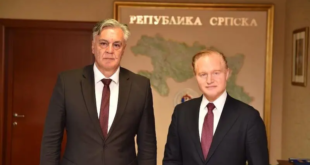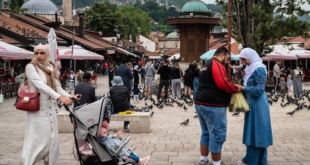The European Union enlargement commissioner Olli Rehn urged Bosnian authorities to adopt a census law, warning that a failure to do so could affect the country’s position in the international community.
“The lack of a census in 2011 would be unfortunate for Bosnia and Herzegovina in terms of its EU perspective. Moreover, it would make it more difficult to solve important socio-economic questions because of the lack of reliable statistical data,” Rehn said in a statement. He added that the EU and Western Balkan countries would carry out a census next year.
“Bosnia and Herzegovina risks being a country that will not join the international community in this important exercise,” he warned.
The warning came a week after Bosnian parliament failed to adopt a draft law that would pave the way for the country to hold a nationwide census in 2011.
The law has been blocked by Bosniak (Bosnian Muslim) and Bosnian Croat MPs who insist that the census should not include questions related to citizens’ ethnic and religious background as has been demanded by Bosnian Serbs.
Bosniak and Bosnian Croat leaders argue that holding a census according to Bosnian Serb demands would cement the ethnic cleansing committed during the country’s 1992-95 war, with some of them requesting census counts to include Bosnian expatriates.
Rehn stressed that the EU did not require questions on ethnic and religious affiliation to be included in the census, adding that the census in Bosnia could not take into account anyone living outside of the country during the twelve months prior to census night.
Power-sharing between ethnic groups in Bosnia is currently based on population numbers from the census held just months before the outbreak of the Bosnian war which killed some 100,000 people and displaced 2.2 million, or more than a half of the country’s population.
According to the 1991 census, Bosniaks comprised some 43 per cent, Serbs about 31 per cent and Croats some 17 per cent of Bosnia’s population. The last census showed that ethnic communities were intermingled throughout the country’s territory.
The 1995 Dayton peace agreement for Bosnia divided the country into two semi-independent entities, the Bosniak-Croat Federation and Serb dominated Republika Srpska. Each entity has its own president, government and parliament, but the two are linked by weak central institutions.
Following the failure by the central parliament to pass the census law, Bosnian Serb leaders voiced their intention to hold a census in the Serb dominated part of the country.
 Eurasia Press & News
Eurasia Press & News



